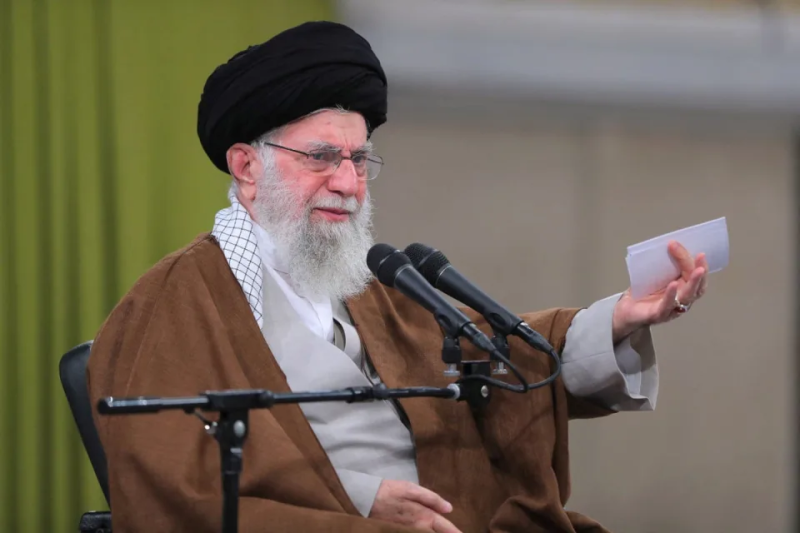- ‘With Science, We Can Feed the World of 9.7 Billion by 2050′ |
- WHO warns of severe disruptions to health services for funding cuts |
- ICJ hears Sudan’s case accusing UAE of ‘complicity in genocide’ |
- Bombardment, deprivation and displacement continue in Gaza |
- Aged and Alone: The hidden pains in old age homes |
Iran will be forced to have nuke bomb if Israel threatens
An adviser to supreme leader Ayatollah Ali Khamenei has said

Iran supreme leader Ayatullah Khamenei.
Khamenei, who is said to have the last word on the matter, banned the development of nuclear weapons in a religious edict in the early 2000s saying it is forbidden in Islam. He reiterated his position in 2019 saying that building and stockpiling nuclear bombs is “wrong and using it is haram”, or religiously forbidden.
But Tehran has repeatedly warned in recent years that it will alter its nuclear doctrine if confronted with an existential threat while maintaining that it does not want to obtain nuclear weapons.
"We have made no decision to build a nuclear bomb but should Iran‘s existence be threatened, there will be no choice but to change our military doctrine," Kamal Kharrazi, an adviser to Mr Khamenei, was quoted as saying by Iran‘s Student News Network on Thursday.
Tehran and Tel Aviv have been locked in an unprecedented confrontation since Israel bombed the Iranian embassy in Syria last month, forcing Iran to launch a retaliatory drone and missile strike on Israeli defence installations. It was widely assumed that Israel would respond in kind but didn’t.
“In case of an attack on our nuclear facilities by the Zionist regime, our deterrence will change,” Mr Kharrazi said, using a term that Iranian officials use for Israel.
He was reiterating an Iranian Revolutionary Guards commander’s warning from April, at the height of the tension with Israel, that Iran could reconsider its nuclear doctrine in response to a perceived Israeli threat.
In 2022, Mr Kharrazi said Iran was technically capable of making an atomic bomb but had not yet decided whether to build one. – The Independent via Yahoo News

